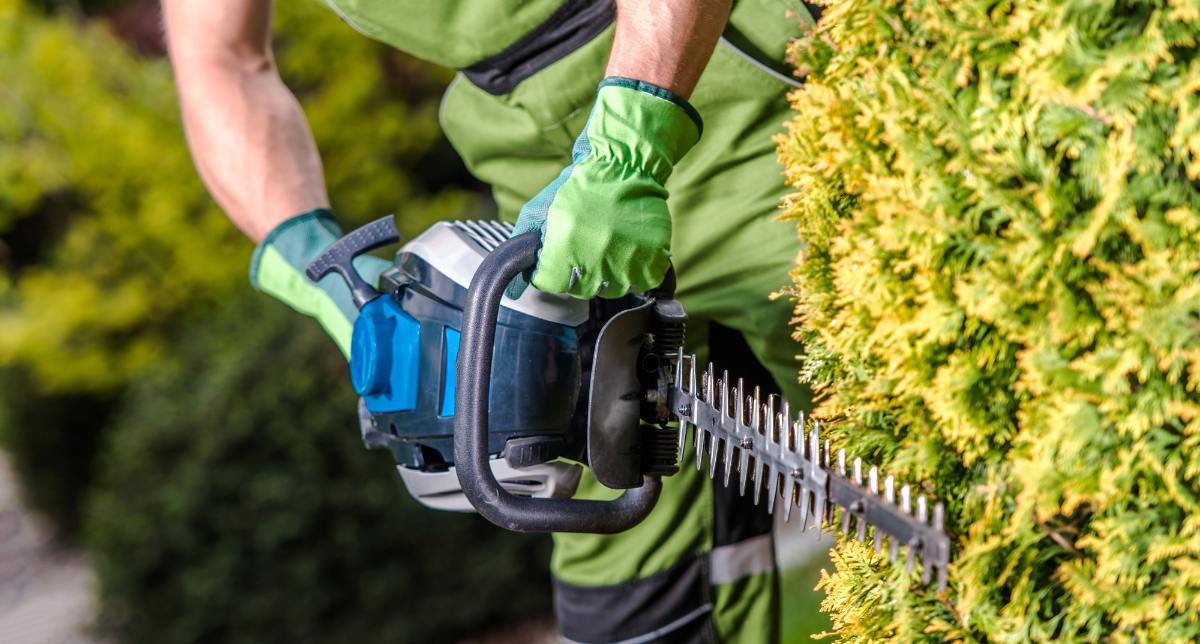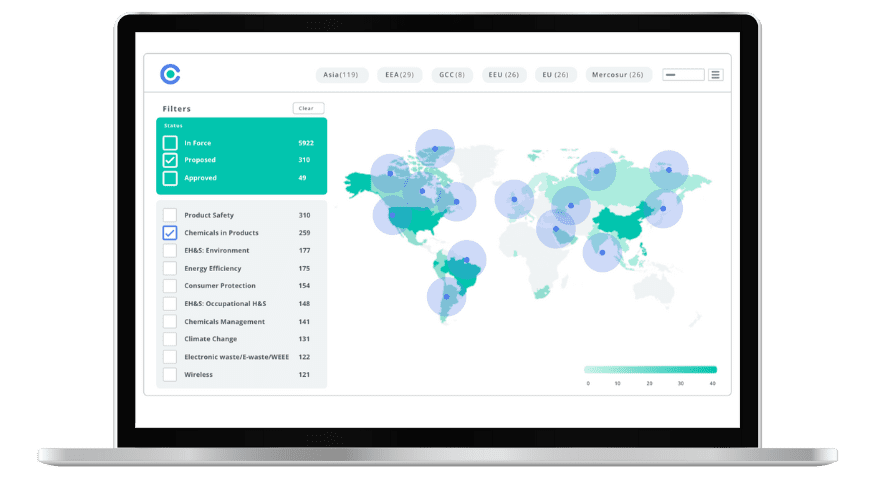
Regulatory Roundup: Power Tools and Garden Machinery

This blog was originally posted on 3rd September 2024. Further regulatory developments may have occurred after publication. To keep up-to-date with the latest compliance news, sign up to our newsletter.
AUTHORED BY JOYCE COSTELLO, SENIOR REGULATORY COMPLIANCE SPECIALIST, COMPLIANCE & RISKS
Introduction
Power tools and garden machinery regulations has continued apace since our last blog on legal measures affecting this highly regulated sector.
Compliance & Risks has identified and summarized a selection of the most critical legal obligations that are a must-know for companies bringing their products to market in the coming months.
What follows below is a snapshot of just some of the regulatory news on power tools and garden machinery regulations impacting the operations of suppliers in these industries today.
Türkiye – machinery safety to be regulated following Regulation 2023/1230/EU
Türkiye’s Ministry of Industry and Technology is ensuring continued alignment of its rules on machinery safety with the EU, so as to allow the free movement of these products within the Türkiye-EU customs union.
On 12 August 2024, the World Trade Organization (WTO) issued a draft regulation on machinery safety modelled on Union Regulation 2023/1230, which should apply simultaneously with the EU measure from 20 January 2027.
Machinery destined for Türkiye must display the contact details of the manufacturer in Turkish. Where impractical, this data may be provided on the product packaging or in a document accompanying the machinery or related product, but must at all times be in Turkish. The instructions for use and the safety information should also be in Turkish, and as normally required should be clear, understandable and legible.
As is currently the case, the manufacturer assumes responsibility for the compliance of the machinery with the requirements laid down in the Regulation by drawing up the EU declaration of conformity. A Turkish translation of the document must however be attached to the EU declaration of conformity of the machinery to be accepted in Türkiye.
Hungary – warranties mandatory for garden machinery and power tools
A Decree issued by Hungary’s Ministry of Justice has clarified the types of consumer goods subject to a mandatory warranty, and includes garden machinery and power tools.
Motorized garden machinery such as hoe machines, lawn aerators, lawn mowers, push mowers, garden tractors and motorized hand tools, especially chain saws, drills, impact drills, angle grinders, circular saws and planers all fall under the obligation for the provision of a warranty in Hungary. The mandatory warranty period for new products is two years in the case of a sales price between HUF 10,000 and HUF 250,000. This rises to three years for products selling at a price in excess of HUF 250,000.
It is the seller who must issue the warranty, and this includes sales conducted online.
If the consumer product fails after having been repaired three times during the warranty period, the supplying company is obliged to replace the consumer product within eight days, unless ordered otherwise by the consumer.
South Africa – WEEE law in the works
Following the recent introduction of extended producer responsibility (EPR) regulations in South Africa covering take-back and treatment obligations for producers of various waste streams deemed “problematic”, the Ministry of Forestry, Fisheries and Environment is now seeking for the first time to establish a specific dedicated framework governing the environmentally sound management (ESM) of end-of-life electrical and electronic equipment (EEE).
A draft policy document reveals the means by which the Ministry aims to achieve the ESM of WEEE:
- By defining “Minimum Technical and Operational Requirements” for all WEEE value chain partners and as per the Norms and Standards (‘N&S’); and
- By encouraging the use of the best practicable environmental option (‘BPEO’) in line with feasible environmental practices globally, thereby eliminating or mitigating any negative impact on the environment and human health.
These WEEE N&S will entail minimum administrative, operational and technical requirements as a future legal requirement. SRIs (Sustainable Recycling Industries) will hold overall responsibility for driving the WEEE N&S development process, along with the conformity assessment and verification protocol process. The foregoing will include pilot auditing events.
The draft policy envisages active enforcement of the EPR regulations, including:
- Government enforcement (see offences (clause 12) and penalties (clause 13 in Section 18);
- Court prosecution and sentencing of EPR system free riders (external and internal);
- Collaborative identification of free riders via producer responsibility organizations.
Producers in this space should therefore be prepared for government enforcement activities, and to ensure they fulfil their obligations under the current EPR rules, which principally include:
- Joining a PRO to fulfil EPR obligations or set up their own (IPR) scheme;
- Assisting with the identification and reporting of free riders.
Canada – PFAS reporting for wide range of businesses by 25 January 2025
By 29 January 2025 parties who manufactured, imported or used per- and polyfluorinated substances (PFAS) on their own, in mixtures and in articles within the 2023 calendar year, must provide certain information to the Minister of Environment through the online reporting system available through Environment and Climate Change Canada’s Single Window.
There are minimum criteria before the requirement will apply to businesses, but the net is generally cast widely, and this obligation is set to impact a large number of parties doing business in Canada, including those that use PFAS to produce their electronic products. A less-than 6 month transition period from publication makes this an onerous obligation, albeit one that should be heeded and prioritized by parties affected, with serious sanctions to be imposed in the event of both a failure to comply and inadequate compliance, such as the provision of false or misleading information.
Penalties include fines, and the amount of the fine for a first offense can range from a maximum of $25,000 for an individual convicted following summary proceedings to a maximum of $500,000 for a large corporation convicted on indictment.
Malaysia – updated safety standards for electrical products power tools
Malaysia’s Energy Commission has updated the list of standards to be applied for certification of regulated equipment, according to GP/ST/No. 37/2024.
Effective from 21 June 2024, parties supplying the following power tools on the Malaysian market (domestic use only) may certify for safety in accordance with the national MS standards based on the IEC 60745 series, or by applying the IEC 62841 series of standards:
- Routers and trimmers (up to 500 W)
- Drill/Impact Drill (drill bit size up to 15 mm)
- Hand held screwdrivers and impact wrenches
- Grinders (up to 100 mm)
- Sander/Polishers (up to 300 W)
- Circular saws and circular knives (cutting blade up to 160 mm)
- Jig and sabre saws / reciprocating saws (up to 60 mm)
- Planers (up to 500 W)
Chile – safety certification of electric reciprocating saws, grinders, disc sanders and polishers
In Chile, the Electricity and Fuel Board (SEC) is establishing a safety certification procedure for electric reciprocating saws (jig and sabre saws), designed mainly for household or similar purposes, with a single-phase electric motor with a voltage not exceeding 250 V AC and not more than 75 V DC (battery operated, Annexes K and L), and rated power up to 3,700 W.
Proposed Protocol PE No. 6/09:2024 would require electric reciprocating saws to comply with:
- IEC 60745-1:2006-04 Edition 4.0 – Hand-held motor-operated electric tools – Safety – Part 1: General requirements
- IEC 60745-2-11:2008-07 Edition 2.1 – Hand-held motor-operated electric tools – Safety – Part 2-11: Particular requirements for reciprocating saws (jig and sabre saws)
Local legislation mandates that the month/year of manufacture of the product and/or serial number, or other means of traceability, must be marked on the product. Importers should also ensure that their products indicate the country of manufacture. As normal, appropriately-certified products should bear the Certification Marking (SEC Seal).
Power tool manufacturers who supply a battery with their product are also reminded to prepare to comply with Protocol PE No. 1/40:2023 on 31 January 2025.
Products subject to PE No. 1/40:2023 include external battery chargers, whose batteries are charged either inside or outside hand tools, battery chargers, both when sold independently, as an accessory or spare part, or when sold together with hand tools.
All battery chargers that are marketed without a specific purpose but that are also used to charge batteries for hand tools, lawn and garden machinery, are also included.
Products will only be allowed on the market in Chile if they can show certification has been obtained in accordance with the scope and field of application of IEC 60335-2-29:2019 and CEI 23-50/CEI EN 50075 (CEI 23-34).
Relatedly, the SEC is consulting on Protocol PE No. 6/03:2024 which would provided for the safety certification of grinders, disc sanders and disc polishers, based on the application of IEC 62841-2-3:2020-04 Edition 1.0; IEC 62841-1:2014-03 Edition 1.0 standards.
The consultation is running from 19 August 2024 to 7 October 2024.
Stay on Top of Power Tools and Garden Machinery Regulations
Want to stay ahead of evolving regulatory developments in power tools and garden machinery regulations?
Accelerate your ability to achieve, maintain & expand market access for all products in global markets with C2P – Your key to unlocking market access, trusted by more than 300 of the world’s leading brands.
C2P is an enterprise SaaS platform providing everything you need in one place to achieve your business objectives by proving compliance in over 195 countries.
C2P is purpose-built to be tailored to your specific needs with comprehensive capabilities that enable enterprise-wide management of regulations, standards, requirements and evidence.
Add-on packages help accelerate market access through use-case-specific solutions, global regulatory content, a global team of subject matter experts and professional services.
- Accelerate time-to-market for products
- Reduce non-compliance risks that impact your ability to meet business goals and cause reputational damage
- Enable business continuity by digitizing your compliance process and building corporate memory
- Improve efficiency and enable your team to focus on business critical initiatives rather than manual tasks
- Save time with access to Compliance & Risks’ extensive Knowledge Partner network

Global RoHS Comparison Table
A high-level snapshot of RoHS rules impacting EEE today, in a format allowing direct comparison of the standard applied from the EU to UAE, India and beyond.


